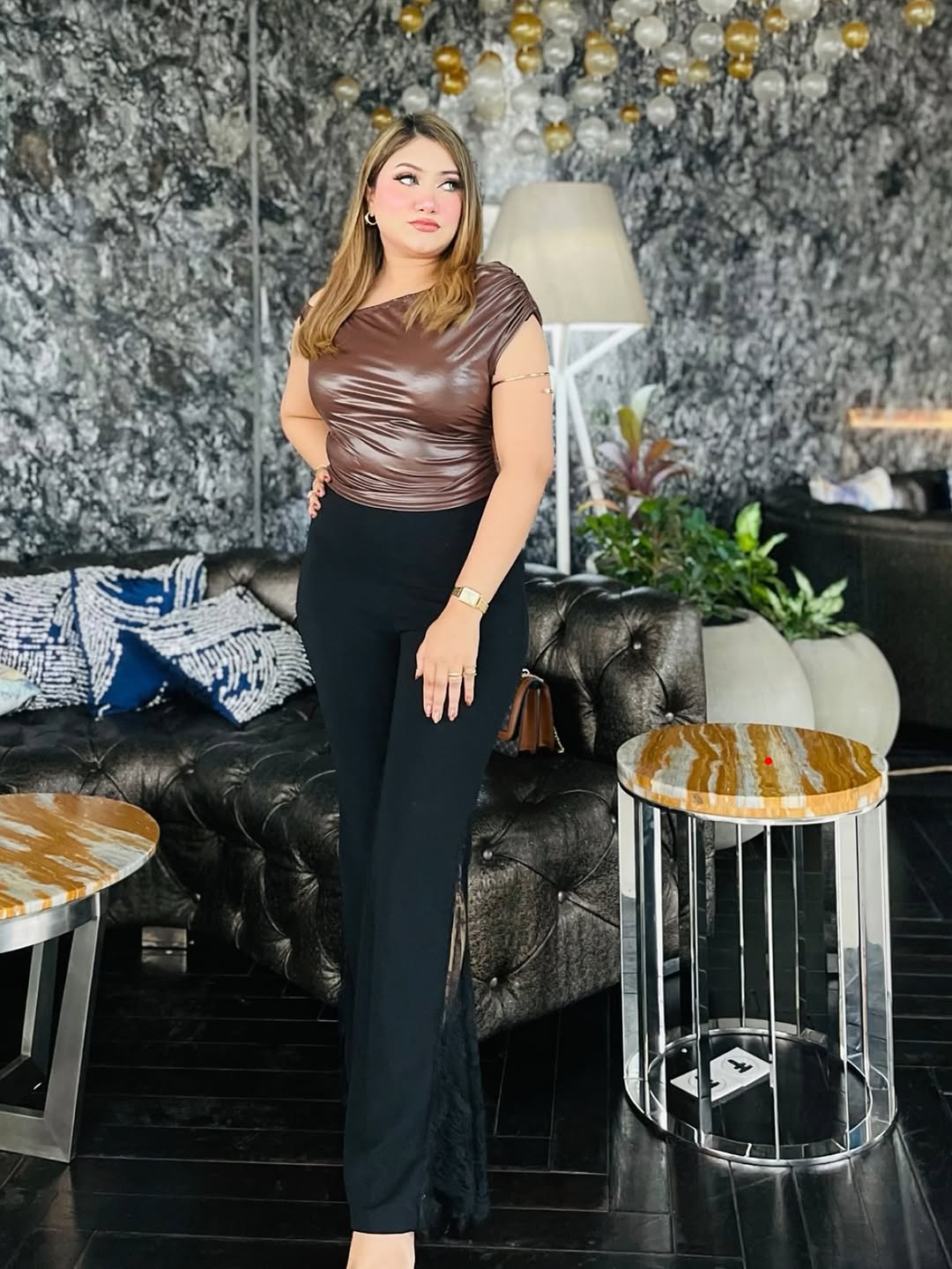
The lobby of the Call Girls In Holiday Inn Suites Lahore was a pocket of manufactured perfection, suspended in the Lahore night. The air was cool, scented with lemongrass and polished marble, a stark contrast to the diesel-and-spice breath of the city outside. Here, under the soft, golden glow of chandeliers, time moved differently. It was measured in the quiet chime of a bell at the reception desk, the hushed echo of footsteps on imported tile.
Aamina watched it all from a plush armchair angled toward the elevators. She was a study in composed elegance, a woman who looked like she belonged to this world of silent, efficient luxury. Her emerald silk dress didn’t shimmer ostentatiously; it absorbed the light, hinting at a depth the cheerful prints of tourists could never achieve. She wasn’t waiting. Waiting implied uncertainty. She was observing, a calm predator in a sea of transient wealth.
Her phone, face-down on the glass table beside her, was the silent conductor of her evening. It had hummed twice. The first message, an hour ago, was a room number. 721. A suite. It always was. The second, just five minutes past, was a single word: “Arrived.”
Her client was a man from the Gulf, likely. Or perhaps a local industrialist’s son, in the city for a wedding he wanted to escape. They were all variations of the same theme: men who believed that the most exclusive commodity in a five-star hotel was not the vintage whiskey nor the thread-count of the sheets, but curated companionship. Discretion was the currency, and Aamina was its most valuable note.
She rose smoothly, a motion practiced to appear effortless. The elevator was a mirrored capsule, and she avoided her own reflection. She knew what it showed: flawless makeup, hair swept into a chic knot, a smile that promised everything and gave away nothing. The woman in the mirror was ‘Jia’ tonight. Aamina was left in the handbag, next to her lipstick and keys.
The hallway on the seventh floor was a long, soundless tunnel. Number 721. She knocked, not too soft, not too loud. A confident rap that stated her purpose.
The door opened to reveal a man in his forties, his crisp white kameez seeming out of place against the Western decor of the suite. He looked relieved, then appreciative, his eyes quickly cataloging her from head to heel. The transaction, in that glance, was almost complete.
“Mr. Ali?” she asked, her voice a pleasant, neutral melody.
“Please, come in,” he said, stepping aside.
The suite was vast, a panorama of Lahore’s glittering skyline through the floor-to-ceiling windows. A bottle of champagne sat in an ice bucket, two glasses waiting. Standard issue.
The next hour was a performance she had mastered. It was a dance of attentive listening, of laughing at the right moments at stories she’d heard in different forms a hundred times. She was a confessional, a status symbol, a beautiful accessory to his loneliness or his celebration. She poured the champagne, her movements economical and graceful. She spoke of art and music, topics she had taught herself from documentaries and digital magazines, constructing a persona as carefully as the hotel had constructed this sterile paradise.
He talked about his textile business, his family abroad, the quiet isolation of his success. She nodded, her eyes reflecting a sympathy she did not feel. Her real self was miles away, calculating the time, the payment that would be discreetly left on the dresser, the novel she was reading back in her own, much smaller apartment.
Later, as he slept, the city’s lights twinkling like fallen stars, she dressed in silence. She folded the emerald dress into her bag, replacing it with a simple, elegant shirt and trousers. ‘Jia’ was packed away. The money, a thick envelope, was slipped into the inner compartment of her bag without her even needing to count it.
She rode the elevator down alone. The lobby was quieter now, the night staff behind the desk offering her a polite, knowing nod. They saw it all—the businessmen, the escorts, the secrets—and their professionalism was a wall as impenetrable as the hotel’s smoked-glass windows.
Pushing through the revolving doors, she was hit by the vibrant, chaotic reality of Lahore. The humid air, the roar of a late-night rickshaw, the distant aroma of seekh kebabs. She hailed a car and slid into the back seat.
As the car pulled away from the curated oasis of the Holiday Inn, Aamma looked back one last time. It stood like a giant lantern, each lit window a secret chamber, a stage for a private performance. For the men inside, it was an escape. For the women who moved through its halls, it was a theater. And the most compelling part of the act was making them believe there was no act at all.



